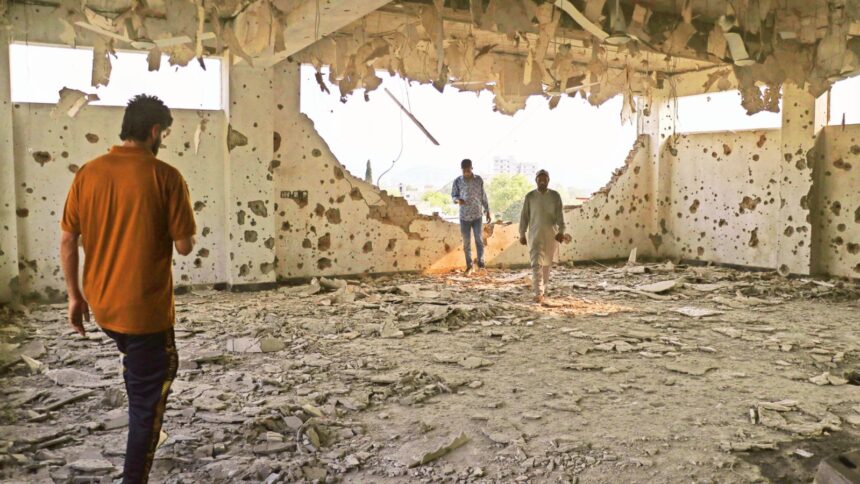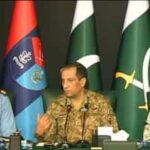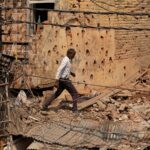AFTER India’s Operation Sindoor Wednesday, fingers are crossed in world’s capitals, from New Delhi’s friends in Washington DC, Paris and Berlin to Islamabad’s all-weather ally in Beijing, on how the “day after scenario” will unfold.
Prime Minister , who was scheduled to travel to Norway, Netherlands and Croatia from May 13 to 17, has cancelled his trip.
Anticipating concern and amid calls for de-escalation, New mounted a diplomatic outreach to major powers including the US and China as NSA Ajit Doval, External Affairs Minister S Jaishankar and Foreign Secretary Vikram Misri had a conversation with several of their counterparts and foreign envoys.
Pakistan Army Chief Gen Asim Munir’s next steps, over the next 24-48 hours, hold the key. How Rawalpindi views the strikes deep into Pakistan — four of the nine were in Pakistan’s cities, including Muridke, Bahawalpur and Sialkot — could very well shape the next steps.
While Muridke is the headquarters of Lashkar-e-Taiba, Bahawalpur is the base of the Jaish-e-Muhammad and Hizbul Mujahideen’s base is in Sialkot. Attacks on these can be perceived as an affront to the Pakistan establishment’s “strategic assets” and raise the possibility of a retaliation from the Pakistan’s Armed Forces.
With Operation Sindoor representing the “new normal” — after the aerial strike in February 2019 — Delhi is in touch with its P-5 partners (permanent members of the UN Security Council) and those who have leverage and influence with Rawalpindi’s Army Chief — Saudi Arabia, UAE and Qatar.
Washington is also aware of the risks with US President on Wednesday saying he hoped “it ends very quickly” and asked, “if I can do anything to help, I will be there”.
Asked about the strikes, Trump said at the White House, “It’s a shame. We just heard about it just as we were walking in the doors of the Oval… I guess people knew something was going to happen based on a little bit of the past — they’ve been fighting for a long time… You know they’ve been fighting for many, many decades and centuries, actually if you really think about it. Now, I just hope it ends very quickly.”
“I want to see them stop,” Trump said later, adding: “We get along with both countries very well, good relationships with both, and I want to see it stop. And if I can do anything to help, I will be there.”
Indeed, as part of the global outreach, NSA Ajit Doval spoke to US NSA and Secretary of State Marco Rubio; Chinese foreign minister Wang Yi; Russian NSA Sergei Shoigu; British NSA Jonathan Powell; Saudi NSA Musaed Al-Aiban; United Arab Emirates NSA Tahnoun bin Zayed Al Nahyan; Japan’s NSA Masataka Okano and Emmanuel Bonne, diplomatic adviser to the French President.
“NSA (Doval) briefed his counterparts on actions taken and method of execution, which was measured, non-escalatory and restrained. He emphasised that India had no intent to escalate but was well prepared to retaliate resolutely should Pakistan decide to escalate,” an official said.
He is said to have told his counterparts that India has no intent to escalate tensions but is prepared to “retaliate resolutely” if Pakistan does so. This is the most clear message to Islamabad via their “all-weather friend” China’s Wang Yi.
China’s Foreign ministry was clear, as its spokesperson Lin Jian said, “China finds India’s military operation early this morning regrettable.”
“We are concerned about the ongoing situation. India and Pakistan are and will always be each other’s neighbours. They’re both China’s neighbours as well,” Chinese Foreign Ministry spokesman Lin told a media briefing.
“China opposes all forms of terrorism. We urge both sides to act in the larger interest of peace and stability, remain calm, exercise restraint, and refrain from taking actions that may further complicate the situation,” he said.
Lin said China stands ready to work with the international community to continue to play a constructive role in the de-escalation of the ongoing tension.
External Affairs Minister Jaishankar also spoke to his counterparts: France’s Jean-Noel Barrot; Germany’s Johann Wadephul; Japan’s Takeshi Iwaya; Spain’s Jose Manuel Albares and Qatar’s Mohammed bin Abdulrahman Al Thani. He briefed them about India’s action against the cross-border terrorist infrastructure.
Following his phone conversation with Iwaya, Jaishankar said India’s action against the cross-border terrorist infrastructure was discussed. Jaishankar said he had a joint call with Barrot and Wadephul. “Appreciated their solidarity and support in the wake of the Pahalgam terrorist attack. Discussed ensuring zero tolerance for terrorism,” he said.
On his phone conversation with Albares, Jaishankar posted on X: “Discussed India’s firm and measured response to cross-border terrorism.”
Iran Foreign Minister Abbas Araghchi is going to arrive late Wednesday night and will meet Jaishankar tomorrow.
In New Delhi, Foreign secretary Vikram Misri briefed 13 foreign envoys — all the UN Security Council members both permanent and non-permanent, except Pakistan and Sierra Leone (they don’t have an embassy in Delhi).
During the briefing, sources said four points were raised: the current escalation by the Pakistani side; Pakistan was shielding TRF (The Resistance Front); the targeted and non-escalatory nature of India’s response and the brutality of the Pahalgam terror attack.
Sources said that one envoy referred to Pakistan’s charge of escalation to which the Indian side said that it “was not escalation but response to terrorist attack.” Asked about reports that a mosque had been hit, India said “it has a complex that included a terror camp”.
Sources said that the Indian mission in the UN will reach out to UNSC members in New York.








